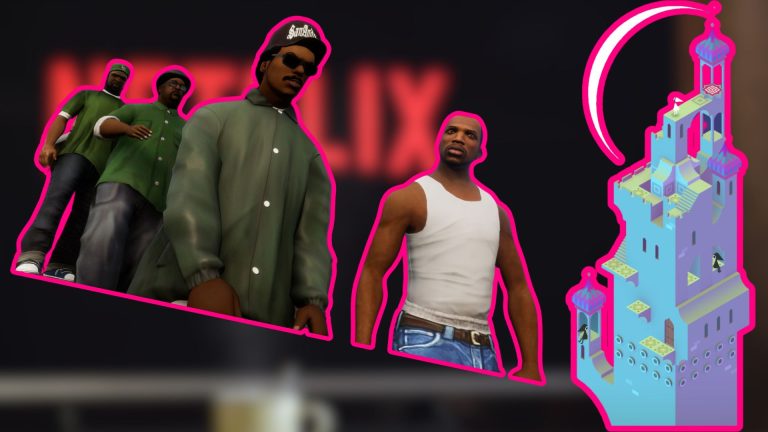It appears Netflix is confident enough already in its video game endeavors that it’s looking to charge people for them.
The streaming giant, known for its extensive library of movies and TV shows (and putting Blockbuster out of business), is now exploring ways to monetize its video game foray.
Ever since introducing its gaming platform within the regular subscription service, Netflix has developed over 75 mobile games, featuring popular IPs such as Grand Theft Auto, Love Is Blind, Monument Valley, and Oxenfree. These games are available for free to Netflix subscribers, but this might soon change.

Reports from The Wall Street Journal indicate that Netflix is in discussions about generating revenue from its budding video game business. Options being considered include in-app purchases, charging for premium titles, and integrating ads into games available to subscribers of its ad-supported tier. These strategies are commonplace in mobile gaming, with consumers spending billions of dollars annually on mobile games.
This potential shift in strategy marks a departure from Netflix’s earlier stance. In April 2023, Netflix co-CEO Greg Peters emphasized the company’s desire to offer a differentiated gaming experience focused on player enjoyment, free from the constraints of ads or in-game payments. However, plans may be changing.
Following its first subscriber loss in over a decade and a recent workforce reduction, Netflix is looking for new revenue streams. Increasing prices and reversing its stance on an ad-supported tier and password sharing indicate the company’s willingness to adapt its business model.

Moreover, Netflix’s ambitions in the gaming industry are evident in its significant investment, reportedly $1 billion if not more, in acquiring gaming studios and investing in game development. A job listing for a game director to work on an AAA PC game points to Netflix’s interest in high-budget gaming projects, which often have development budgets exceeding $200 million.
The idea of monetizing games has sparked debate within Netflix, reflecting the company’s culture of open discussion on strategic decisions. While there’s no confirmation that these monetization strategies will be implemented, they show a significant pivot for Netflix Games. The company’s current strategy has centered on increasing engagement with Netflix IP and reducing churn rates. For instance, the mobile game Stranger Things: 1984 saw sustained elevated performance well beyond the runtime of the show it’s based on.
Netflix’s exploration of new monetization methods aligns with broader industry trends, where live service games and in-game purchases have become highly profitable. However, game development is a risky venture, with only a few titles achieving significant success. The challenge for Netflix will be to balance the creation of engaging, quality games with the financial realities of the gaming industry.

As Netflix navigates this new terrain, it remains to be seen how these potential changes will impact its gaming offerings and overall subscription model. With a commitment to gaming for the long term and major content updates planned, Netflix is poised to become a notable player in the gaming industry, albeit with a careful approach to monetization that aligns with its broader business objectives and subscriber interests.

